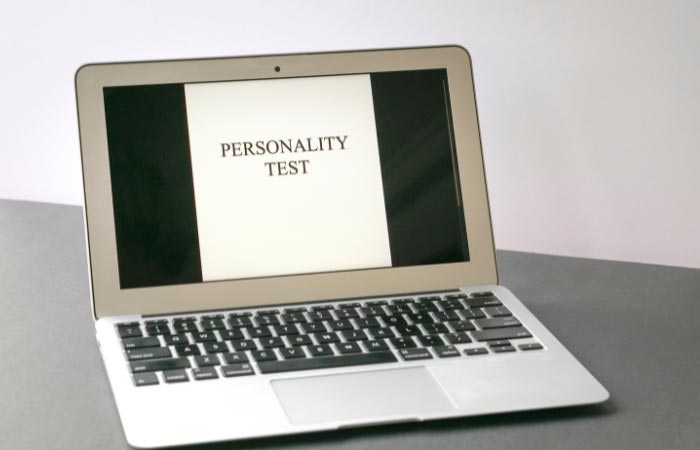The professional landscape has undergone a paradigm shift with the advent of hybrid work, blending the flexibility of remote work with the traditional office setting. As we embark on this journey, a pertinent question arises: What personality types thrive in the realm of hybrid work? In this exploration, we delve into the intricacies of personality traits, team dynamics, and the role of virtual offices in shaping the ideal hybrid work environment.
Understanding the Hybrid Work Model
-
The Fusion of Remote and Office Dynamics
Hybrid work seamlessly combines the benefits of remote work with the collaborative essence of office interactions. Team members have the flexibility to work from anywhere, fostering a dynamic work culture.
-
Striking a Balance
A successful hybrid work model strikes a delicate balance between autonomy and collaboration. It caters to individual preferences while ensuring teams remain connected and engaged.

Personality Types That Thrive in Hybrid Work
- The Autonomous Achiever
- Traits: Independent, self-motivated, and goal-oriented.
- Hybrid Advantage: Flourishes in a setting that allows for autonomy and self-direction. Thrives on setting personal goals and achieving them with minimal supervision.
- The Collaborative Connector
- Traits: Social, communicative, and team-oriented.
- Hybrid Advantage: Excels in the hybrid model by leveraging both in-person and virtual interactions. Values team collaboration and fosters a sense of connection in both settings.
- The Adaptable Innovator
- Traits: Flexible, creative, and adaptable.
- Hybrid Advantage: Flourishes in an environment that encourages adaptability and embraces change. Thrives on finding innovative solutions to challenges, whether working remotely or in the office.
- The Structured Organizer
- Traits: Detail-oriented, organized, and methodical.
- Hybrid Advantage: Performs well in a hybrid setting by creating structured work plans. Balances the need for a designated workspace in the office with the flexibility of remote work.
The Power of Insight: Unlocking Potential with Personality Tests

In the realm of understanding oneself and others, the 16 Personalities test emerges as a beacon of insight. Rooted in the Myers-Briggs Type Indicator® (MBTI®) assessment, this test is a powerful tool designed to unravel the intricacies of personality, providing a framework to comprehend individual strengths and tendencies.
- The Essence of MBTI®
The MBTI® assessment, upon which the 16 Personalities test is built, is a globally recognized tool developed by Katharine Cook Briggs and her daughter Isabel Briggs Myers. It’s based on Carl Jung’s theory of psychological types and offers a comprehensive understanding of personality preferences.
- Navigating the Four Dichotomies
At its core, the MBTI® assesses individuals across four dichotomies:
- Extraversion (E) or Introversion (I): How individuals direct and receive energy.
- Sensing (S) or Intuition (N): How individuals prefer to take in information.
- Thinking (T) or Feeling (F): How individuals prefer to make decisions.
- Judging (J) or Perceiving (P): How individuals approach the outside world.
- The Birth of 16 Personalities
The 16 Personalities test, an offspring of the MBTI®, takes these dichotomies and weaves them into a rich tapestry of 16 distinct personality types. Each type is a unique combination of these preferences, offering a nuanced understanding of an individual’s approach to work, relationships, and decision-making.
- Practical Insights for Hybrid Work Success
- Tailoring Work Preferences: Understanding whether team members lean towards extraversion or introversion guides leaders in tailoring work environments. Introverts may thrive in quiet, focused remote settings, while extraverts may benefit from the collaborative buzz of the office.
- Communication Styles: The MBTI® sheds light on communication styles—crucial in hybrid settings. Thinkers may prefer concise, data-driven communication, while feelers may appreciate a more empathetic approach.
- Conflict Resolution: Knowing team members’ preferences in decision-making aids in resolving conflicts. Judgers may prefer clear plans and deadlines, while perceivers may be more adaptable and open to spontaneity.
- Building Stronger Teams with 16 Personalities
The 16 Personalities test not only delves into individual strengths but also serves as a cornerstone for building cohesive teams:
- Complementary Traits: By identifying diverse personality types within a team, leaders can assemble a complementary mix of skills and perspectives, enhancing problem-solving and innovation.
- Potential Areas of Collaboration: Recognizing that certain personality types naturally complement each other allows teams to strategically assign tasks. For instance, a detail-oriented thinker may pair well with a creative, intuitive team member.
Navigating Team Dynamics: Personality Tests for Teams
- Identifying Team Dynamics
Personality tests extend beyond individual insights to illuminate team dynamics. Recognizing the collective strengths and preferences of a team guides leaders in optimizing the hybrid work experience.
- Enhancing Communication
Teams composed of diverse personality types benefit from enhanced communication. Personality tests facilitate open dialogue by providing a shared understanding of communication styles within the team.
The Virtual Office Advantage in Hybrid Work
- Centralized Communication Hub
As a leading virtual office provider, Telirco offers a centralized hub for seamless communication. Our services, including USSD and Telirco Call Center, ensure teams stay connected irrespective of their physical location.
- Adaptable Workspaces
Telirco’s virtual office solutions cater to the diverse needs of hybrid work. From structured workspaces for the organized to flexible communication channels for the collaborative, Telirco empowers teams to thrive in any work setting.
Conclusion: Tailoring Hybrid Success with Personality Insights
As we navigate the uncharted waters of hybrid work, understanding the dynamics of personality types becomes a compass for success. Embracing the diverse strengths within a team, leveraging personality insights, and utilizing the tools provided by virtual office solutions like Telirco, are key elements in crafting a thriving hybrid work environment.
Take the 16 Personalities test and embark on a journey of self-discovery, unlocking the potential for success in the evolving landscape of hybrid work.
Related articles:
virtual office advantages and disadvantages
How do I Set Up a Virtual Office Business?
How much does it cost to run a virtual office?
Why Establishing a Virtual Office is Advantageous in Business Management
What are the challenges of managing a remote team?

